Coconut water, one of the country’s top exports, is a...
Read More
Announcements

Bachelor of Science in Chemical Engineering (4 years)
The Bachelor of Science in Chemical Engineering (ChemE) curriculum provides the student with the knowledge and skills needed for future leadership and global competitiveness in the practice of the Chemical Engineering profession. It provides a rich environment for research and for imbibing Christian values distinct to Thomasian engineers.
Within four years after graduation, Bachelor of Science in Chemical Engineering alumni from the University of Santo Tomas shall be engaged either locally or abroad in design, operation, or management of an industrial plant; or pursue teaching, research, technical sales, or entrepreneurship after having completed advanced studies or special training. Furthermore, they shall be expected to imbibe the Thomasian traits of contemplative, creative, and critical thinking; exemplary work ethic; and a commitment to the improvement of society and lifelong learning.
The Bachelor of Science in Chemical Engineering program is accredited by the Engineering Accreditation Commission of ABET, under the commission’s General Criteria and Program Criteria for Chemical, Biochemical, and Similarly Named Engineering Programs.
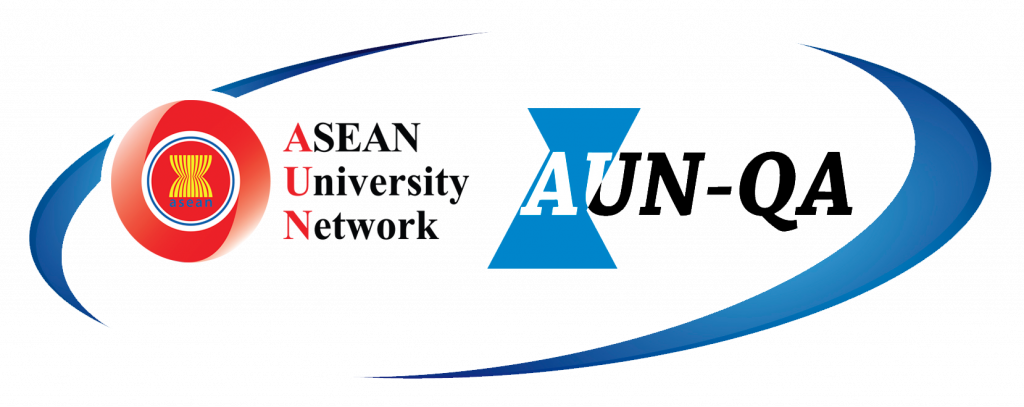
ASEAN University Network – Quality Assurance Program Assessment
Re-certified valid until December 13, 2029
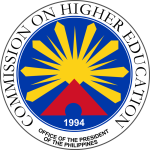
Center of Excellence
Center of Excellence (COE) refers to a department within a higher education institution, which continuously demonstrates excellent performance in the areas of instruction, research and publication, extension and linkages and institutional qualifications.

PAASCU (FAAP)
Reaccredited

PTC ACBET
Assessed
Coconut water, one of the country’s top exports, is a...
Read MoreIn the November 2024 Chemical Engineering licensure exams, Ronald Libago...
Read More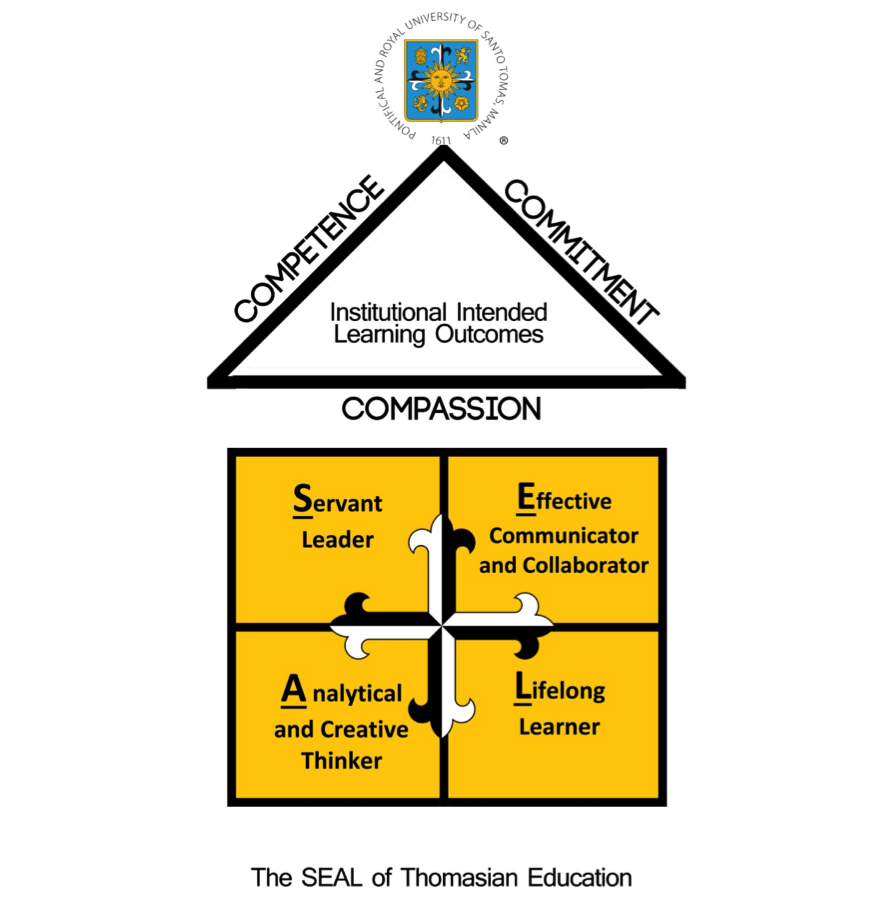
The University of Santo Tomas, in pursuit of truth, guided by reason and illumined by faith, dedicates herself to the generation, advancement, and transmission of knowledge to form competent and compassionate professionals committed to the service of the Church, the nation, and the global community.
I am a Thomasian. I carry the SEAL of Thomasian education. I am a Servant leader, an Effective communicator and collaborator, an Analytical and creative thinker, and a Lifelong learner. With Christ at the center of my formation as a Thomasian, I am expected to demonstrate the following Thomasian Graduate Attributes (ThoGAs):
SERVANT LEADER
EFFECTIVE COMMUNICATOR AND COLLABORATOR
ANALYTICAL AND CREATIVE THINKER
LIFELONG LEARNER
Effective for Cohort 2025 (AY 2025-2026 intake)
Within four years after graduation, Bachelor of Science in Chemical Engineering alumni from the University of Santo Tomas shall:
PEO 1 – Demonstrate technical competence in chemical engineering, locally or abroad, by engaging in any of the following: (a) design, operations, and management in industrial companies; (b) teaching or research after completing advanced studies; (c) technical sales or entrepreneurship after completing special training;
PEO 2 – Demonstrate exemplary work ethics and commitment to the improvement of the society;Demonstrate exemplary work ethics and commitment to the improvement of the society;
PEO 3 – Practice lifelong learning for professional development, reflective of compassion, and responsive to the challenges of the contemporary times through contemplative, creative and critical thinking skills.
Effective for Cohort 2015 (AY 2015-2016 intake) to Cohort 2024 (AY 2024-2025 intake)
Within four years after graduation, Bachelor of Science in Chemical Engineering alumni from the University of Santo Tomas shall be engaged either locally or abroad in design, operation, or management of an industrial plant; or pursue teaching, research, technical sales, or entrepreneurship after having completed advanced studies or special training.
Furthermore, they shall be expected to imbibe the Thomasian traits of contemplative, creative, and critical thinking; exemplary work ethic; and a commitment to the improvement of society and lifelong learning.
*Cohort refers to the year of entry of students
Equivalent to Program Intended Learning Outcomes
Effective A.Y. 2019 – 2020
By the time of graduation, the students of the Program shall have the ability to:
SO-1. identify, formulate, and solve complex engineering problems by applying principles of engineering, science, and mathematics
SO-2. apply engineering design to produce solutions that meet specified needs with consideration for public health, safety, and welfare, as well as global, cultural, social, environmental, and economic factors
SO-3. communicate effectively with a range of audiences
SO-4. recognize ethical and professional responsibilities in engineering situations and make informed judgements, which must consider the impact of engineering solutions in global, economic, environmental, and societal contexts
SO-5. function effectively on a team whose members together provide leadership, create a collaborative and inclusive environment, establish goals, plan tasks, and meet objectives
SO-6. develop and conduct appropriate experimentation, analyze and interpret data, and use engineering judgement to draw conclusions
SO-7. acquire and apply new knowledge as needed, using appropriate learning strategies
The Advisory Council (AC) facilitates the consultation with the external constituencies when reviewing and updating the Program Educational Objectives, as well as the curriculum and Student Outcomes, and to some extent the overall plans, for the continued relevance of the ChE Program.
The AC consists of alumni, major employers, representatives from the chemical engineering professional organization and representatives from other higher educational institutions offering the same Program. The council members help the Department in identifying the expected academic capability and skills necessary to be possessed by Chemical Engineers in the actual practice of the profession and provide recommendation on possible courses to be embedded in the curriculum in various areas of specialization.
Likewise, they participate in the review and realignment of the Program Educational Objectives (PEO) of the Chemical Engineering Program to respond to the demands of the industry, both local and global.
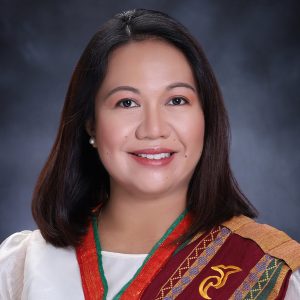
Engr. Diana Pearl R. Arida, MSc
Master of Science in Chemical Engineering

Engr. Mac Jayvin S. Balanay, MSc
Master of Science in Chemical Engineering
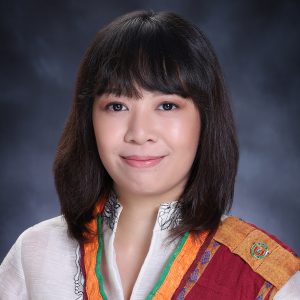
Engr. Jean Raynell S. Bello, MSc
Master of Science in Chemical Engineering
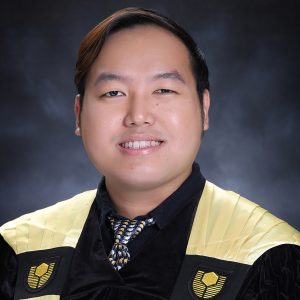
Engr. Aldrin Lorrenz A. Chan, MSc, MES
Master of Engineering Science, major in Metallurgy
Master of Science in Chemical Engineering
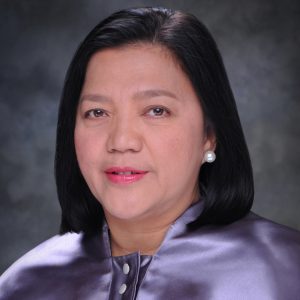
Asst. Prof. Rosalina A. Lioanag, MSc, MBA
Master of Science in Chemical Engineering
Master of Business Administration
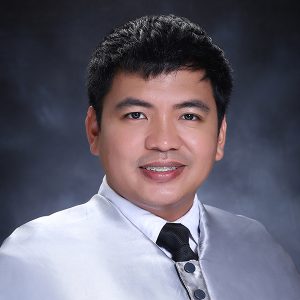
Engr. John Victor P. Mateo, MSc
Master of Science in Environmental Science and Ecosystem Management
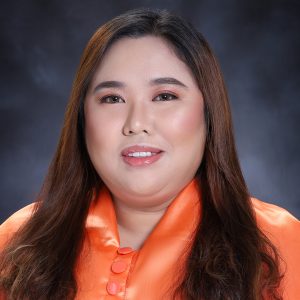
Asst. Prof. Rose Mardie P. Pacia, MSc
Master of Science in Engineering, major in Chemical Engineering
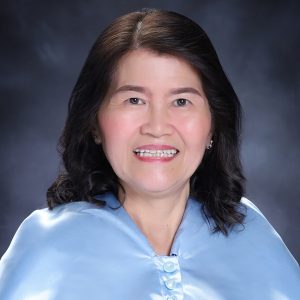
Asst. Prof. Vilma G. Santos, MSME, MAT
Master of Science in Management Engineering
Master of Science in Teaching, major in Mathematics